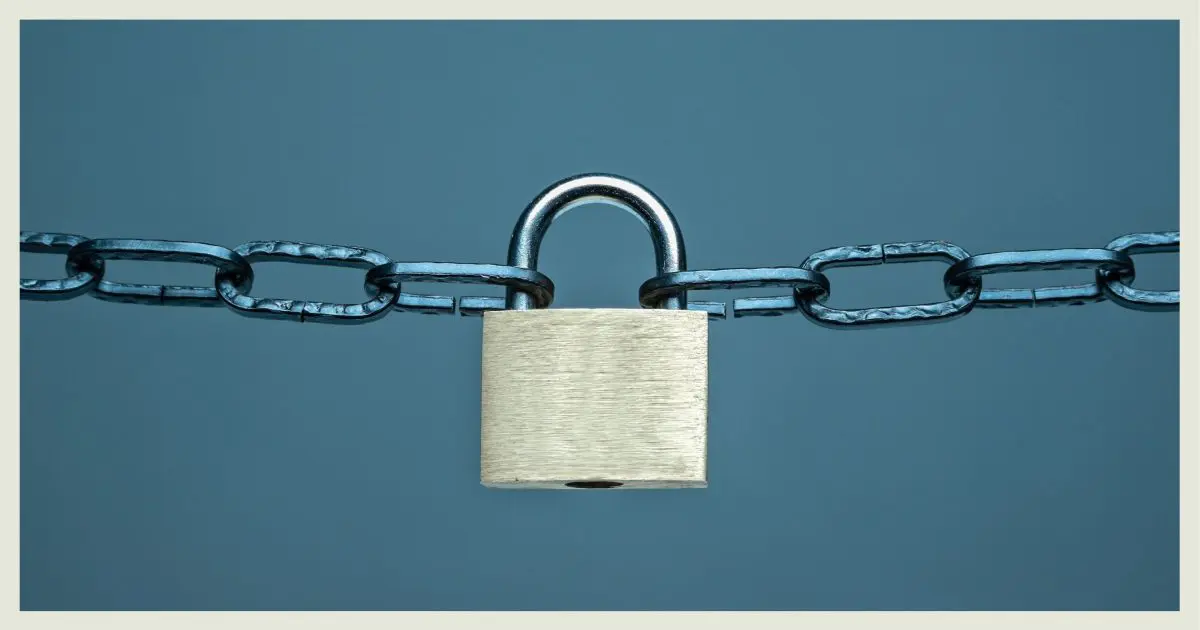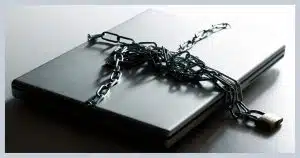The risks of access while signed out.

The short answer is yes, absolutely. I think you’re right to be concerned.
I also think there’s an important lesson here for everyone.

Installing when not signed in
If your computer is not physically secure, it’s not secure. If that’s of concern:
- Keep the machine physically locked up when not in use.
- Consider adding a BIOS password.
- Consider adding a hard-disk password or using whole-disk encryption.
- Regardless, encrypt your sensitive data.
Physical security
I want to be sure everyone is aware of one rule of thumb. In fact, if you remember only one thing from this article, let it be this:
If your computer is not physically secure, it’s not secure.
If someone can access your computer physically, your computer is not secure.
“What about passwords?” I hear you asking.
Password locks only go so far
You indicated that the computers are “…usually password locked.” I assume by “password locked” you mean either you are not logged in to the machine or a password-protected screensaver is running.
First, usually? If you’re away from the machine for any length of time while you are logged in, the door is wide open. Anyone can walk up to your computer and do whatever they want, including downloading spyware or much worse.
Even when your computer is “locked” using a Windows login or screensaver password, it’s still vulnerable.Anyone walking by your machine with a boot disc or bootable USB drive could reboot the machine (by pulling the plug, if necessary), boot from their disc, and get access to everything on your machine.
Then, just as if you’d left it unlocked in the first place, that person can do anything, including installing spyware, reading your data, messing up your files, or whatever else they want.
In a more destructive scenario, someone could remove the hard drive or steal the entire machine. That would be obvious to you, but if you had something you thought was safe and secure on that hard disk, it could easily end up in the hands of thieves.
In recent years, we’ve heard of hardware-based security threats — for example, so-called “USB killers” designed to damage any computer they’re inserted into. Anything that can be connected to your computer represents another layer of risk.
Staying physically secure
If scenarios like this concern you, consider taking these steps.
- Keep the machine in a locked cabinet or room when not in use.
- Consider adding a BIOS password required to boot the machine in any way. (This adds security but does not prevent hard-disk theft.)
- Consider adding a hard-disk password or using whole-disk encryption to restrict access to the hard drive completely unless the passphrase is specified.
- Use encryption of some sort on your sensitive data.
In your case, I’d get more trustworthy roommates.
Do this
Subscribe to Confident Computing! Less frustration and more confidence, solutions, answers, and tips in your inbox every week.
I'll see you there!






I have the same worry.
When I turn on my computer and DSL modem, Windows Update and Norton AntiVirus go out to get updates even before I log onto the internet using IE6 and ATT/Yahoo DSL.
If these programs can go to the internet without my being logged on, can something out there in the World Wide Web download something onto my computer without my knowing it? (I have Windows Firewall running and Norton AntiVirus).
I use TrueCrypt whole disk encryption and my screen is always locked when I’m away.
I know that if the encrypted filesystem is mounted, encryption is useless, so the safer route would be turn the computer off all the time when away.
However, that’s not an option when you have some background tasks that run when computer is idle (backup, file indexing).
I use a laptop with battery always at 100%, so it would be a problem if someone stole it that way.
Actually, I’m thinking about installing an app to lock Windows login after a certain period of time. Windows screensaver lock doesn’t seem very safe. Any suggestions?
In cases like you describe I think a double locked door would be the best option. Leave the encrypted file mounted and your background tasks and programs running. Then use a good strong passphrase (long and complex) to secure your user account when you leave your machine alone. The only way to bypass UAC would require a reboot hence your files are now inaccessible.
Sorry to bother you.
Somehow which i did not do myself I have a toolbar called VisualBee which is preventing me to sign in on some of my website. It’s taking to much room across the Board. I went into my control panel which took it off there but not on my computer. I wrote to them about it. I believe that it has something to do with something called Conduit ? That name comes up at times. I’ve tried everything but cannot get rid of this thing. If you can help that would be very much appreciated Thank you.
Annie
Here’s an article that might help: http://ask-leo.com/toolbars_in_internet_explorer_how_do_i_get_rid_of_them.html
Treat it like malware: How do I remove malware?
I got fired from a job because someone came to my computer, which wasn’t locked down, and sent an inappropriate joke to a bunch of managers. I had no way to prove I didn’t do it because I couldn’t remember where I was at the time.